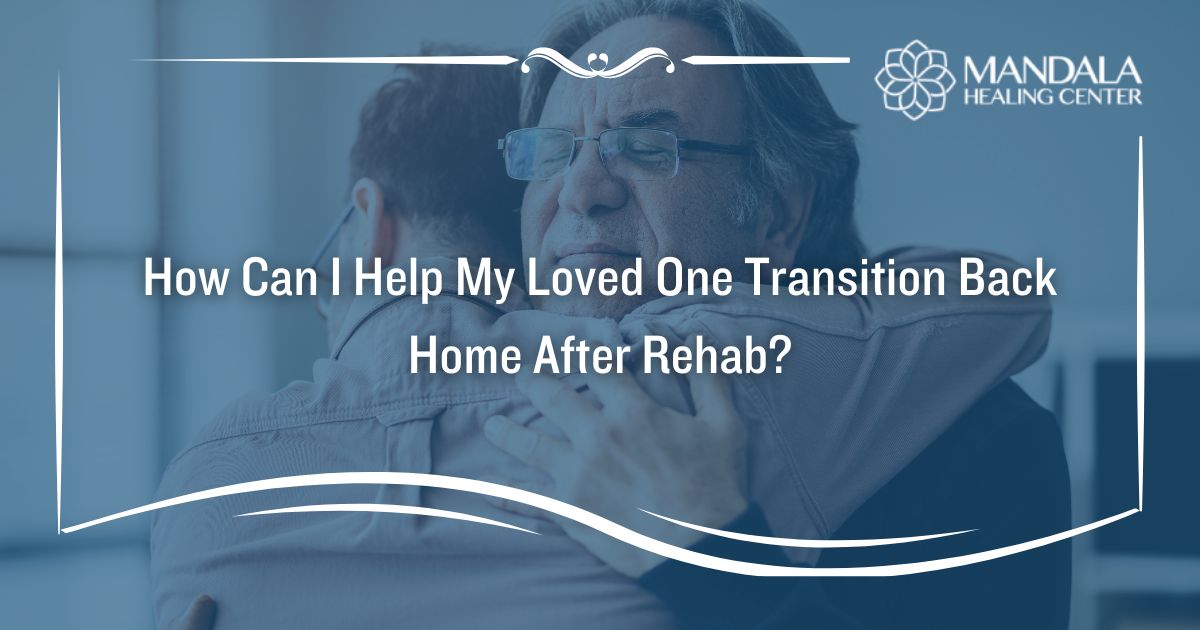Addiction is a chronic and progressive disease that requires ongoing maintenance to maintain recovery. If your loved one has just completed an addiction treatment program, they still have work to do. For example, most people choose to continue working on their sobriety by attending 12-step programs and engaging in a supportive network.
When your loved one comes home from rehab, you might be wondering how you can support them. The recovery process can be difficult and your loved one’s sobriety might be fragile during the transitional phase between treatment and everyday life. Thankfully, there are some ways you can help your loved one cope with life after rehab.
One of the main things you need to remember is to take it slow. Your loved one will need time to adjust to sobriety outside of a treatment facility. You should also encourage your loved one’s recovery by offering emotional support, respecting their boundaries, and setting rules to keep them accountable.
In this article, you will learn:
- How to support your loved one after they complete rehab
- How offering emotional support can help your loved one’s addiction
- The importance of respecting their boundaries and setting your own rules
How to Support a Loved One After Rehab
The transition from an addiction treatment center to independent living can be tough. Your loved one will face new triggers that they’ll have to use their learned skills and coping mechanisms to overcome. The stress of this time can weigh on them, so becoming familiar with ways to support them can be helpful.
The best ways to support a loved one who is transitioning back home after drug rehab include:
Take it Slow
You might be tempted to throw a big homecoming party to celebrate your loved one returning home. While this is a nice thought, it could create more stress than you realize. For example, parties require a lot of social interactions that your loved one might not be ready for yet.
The party attendees might want to hear your loved one tell you about rehab, which could be more intrusive than helpful. Your loved one might want some quiet time to settle in before they are thrown into a large social event.
Offer Emotional Support
Substance use disorders can be taxing on your mental health. When your loved one comes home from a rehab facility, they might need a shoulder to lean on. Letting them know that you are there for emotional support whenever they need it can make all of the difference.
Individuals in recovery sometimes feel isolated from their loved ones because they are going through something that their family members might not understand. You should let your loved one know that while you haven’t been through addiction, you are there to support them in whatever way they need.
Respect Their Boundaries
Sometimes boundaries get crossed in families. When your loved one was in rehab, they likely worked on learning how to set healthy boundaries for when they return home. If your loved one sets boundaries when they arrive, make sure you commit to respecting them.
It is important to remember that they are not setting boundaries to hurt you. Instead, they are asking for what they need to ensure they stay sober. Additionally, setting boundaries is an important part of the recovery process.
Focus on the Present
When your loved one comes home from rehab, you might be tempted to rehash the past. If there were large arguments you and your loved one experienced during their addiction, you might want to resolve them immediately. While you must get what you need emotionally, it might be best to focus on the present until your loved one is ready.
Rehashing the past could bring unnecessary stress into your loved one’s daily life, impacting their physical and mental health. Most recovered addicts will address past issues once they are ready to do so, as making amends is a major part of 12-step programs.
Create Some Rules
Your loved one should be setting boundaries to keep themselves sane, and so should you. There might be certain expectations you have to keep your home orderly and safe. If you have some ground rules you’d like your loved one to follow, make sure to make them clear soon after they arrive home.
Creating rules can help model healthy communication skills to your loved one. Doing this might help them understand how they should set their boundaries.
Get Connected to a Drug and Alcohol Rehab Center
If you or a loved one suffers from alcohol or drug addiction, it’s time to seek professional help. Addiction treatment centers can provide you with the tools and support you need to achieve long-term sobriety. At the Mandala Healing Center, we offer a combination of individualized and evidence-based treatment to ensure you get the care you need.
Why Choose The Mandala Healing Center? Clients are taken on a journey of healing through complete immersion into evidence-based clinical modalities, multifaceted alternative therapies, and expert medical management, allowing them to fully detox and recover from drug and alcohol addictions. Through a program of care designed to encourage change, a foundation is created that allows clients to find their higher purpose and reclaim their lives.
Contact the Mandala Healing Center today to learn more about how we can help you throughout the recovery process. We can offer a free and confidential assessment to determine if our addiction treatment program is right for you.












